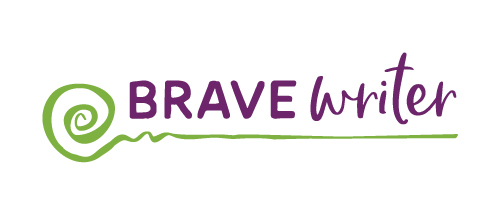Welcome to "Tea with Julie," a weekly missive by me, Julie Bogart. My wish is to give you food for thought over a cup of tea to enhance your life as an educator, parent, and awesome adult. Glad you're here. Pinkies up!
P.S. Was this email forwarded to you? Add yourself to the list and get your own!
Cincinnati, November 12, 2022
Hi Friend,
When explaining the Brave Writer philosophy, we found using an analogy helpful.
Let's look at learning to use a sewing machine.
A sewing machine makes it possible to create all kinds of sewing products—anything from hemming a pair of pants, to constructing a quilt, to producing an evening gown. The machine doesn’t do it for you. You have to know how to use the machine, and you have to develop skills:
- how to sew straight seams
- how to drop in a sleeve
- how to gather a drape
- how to create casings
- how to use the zig zag
- understanding what the tension dial does
When learning the skills needed for sewing, students start with scrap fabric. They don’t pick a dress pattern and then sit down to the machine. Usually they have to learn how to thread the needle and bobbin, they have to sew lots of straight lines and learn how to turn corners and how to backstitch the end of a seam so that it doesn’t unravel.
No one can learn all she needs to know in one sitting or even one year of sewing. There are levels of skill that are gained over time, as comfort with the machinery, manual dexterity, and familiarity with the properties of sewing are internalized and mastered.
But it is possible at each stage of development to introduce a little project appropriate to the current set of skills. At first, these might be sewing projects like bean bags (squares) or a string dress (no pattern, but the dress uses casings). As the student gets comfortable, making an a-line dress for a doll from a pattern becomes possible and a thrill! Producing a doll quilt is the first step toward making one for a bed.
Eventually, the student of sewing learns tricks to make the process easier and faster. They can size up a pattern to know if it’s too difficult or too easy, and can make changes to make the pattern work.
Sewing is not about the dress patterns or quilts. Sewing is a set of skills that can be applied to patterns.
Let's drive home the analogy to writing.
There are Three Components of a Complete Writing Program:
- Mastery of the original writing process
- Rehearsing the mechanics of writing
- Producing writing projects that put mechanics and original writing together
First, the original writing process is discovered using scrap language—whatever is in the mind and mouth of the child at the time. The writing is interest-driven and exploratory. The child is gaining facility with the practice of accessing language, ideas, insights, and information from within and getting those words to the page in a variety of ways (all different styles of “language stitching”).
Second, the child learns to use the mechanics of writing similar to learning to use the sewing machine. Similarly, the functional skills needed to run the machinery of writing are spelling, grammar, punctuation, handwriting and/or typing. And in Brave Writer, we believe that in the beginning that's best learned through copying someone else's writing and practicing dictation (taught in our program).
Third, students create writing projects which are the dress patterns of writing. In writing, once students know how to find language within, how to get that language to the page, and how to handwrite, expand, revise, and edit, they are ready to “make something” —to write a report or letter, to write a poem or a dialogue, to write a story or ad copy, to write an essay.
The point is...
Don’t hand your brand-new-to-writing student the equivalent of an evening gown dress pattern and expect it to turn out right on the first try, just because there are “clear instructions.”
Writing is a set of skills practiced independently of assignments, leading up to developmentally appropriate writing projects that reinforce and expand evolving skills.
Also, if you'd like to learn more about the three components of a writing program and the tools Brave Writer provides, go here.
Black Friday weekend and Cyber Monday are around the corner.
Come to our "Get to Know Brave Writer" webinar on Tuesday, November 15.
Then, take advantage of our biggest discount of the year!
Sign up here!
Also: if you want the best discount we're offering, join our text messaging list.
Warmly,

P.S. Catch up on all the “Tea with Julie” emails here!
Julie Bogart
© 2022 Brave Writer LLC™
help@bravewriter.com

.